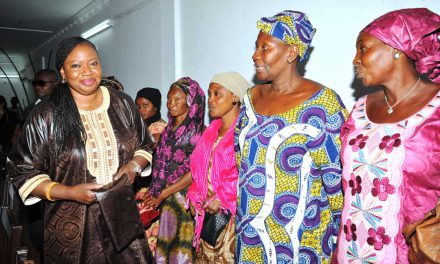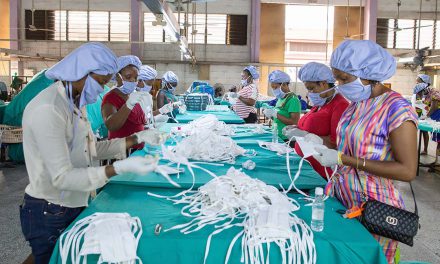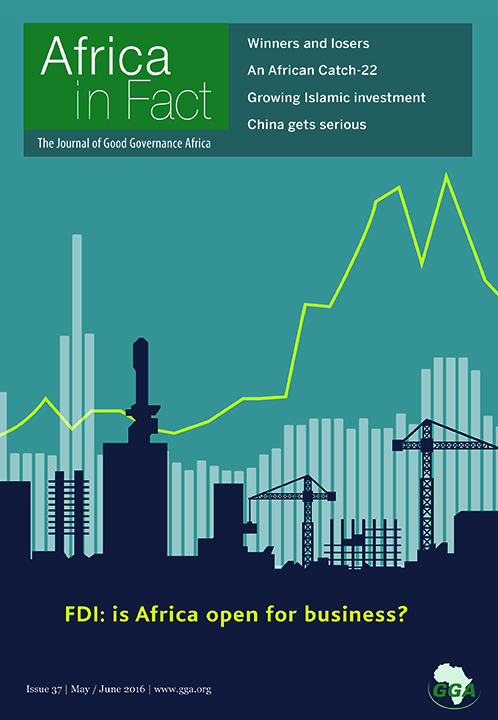Africa: migration
The lived experiences of migrants in Africa tell stories of isolationism and segregation within host countries

Africa’s long history of migration and population movements is well documented. Since the pre-colonial era, people have moved across the continent for a range of reasons, including the need to seek protection and a desire for socio-economic prosperity. In 2015, Africa had some 21 million international migrants, the majority from other African countries, according to the UN. The post-colonial era engendered new migration dynamics, among them the continuing renegotiation of—and fierce struggles over—identity and belonging, as a result of increasing contact between migrants and their host societies. In Africa, as elsewhere, it has been assumed that integration and assimilation would naturally result from the interactions between locals and immigrants. Migrants were expected to adopt their hosts’ social and cultural identities. Integration and assimilation would result in their complete sense of belonging. However research indicates that migrant-host interactions are leading to different outcomes, engendering new idioms of identity and belonging: migrants are either partially adopting or outrightly rejecting local identities. These include cosmopolitanism, or migrants’ detachment from nations and the territories they inhabit; transnationalism and translocalism, or migrants’ simultaneous affiliation and attachment to different nations or places; long-distance nationalism, where migrants retain their sense of original national identity and involvement in home countries’ political affairs; and diaspora, where migrants retain their affiliation with ethnic kin dispersed across the globe, their current countries of residence and their countries of origin. Though documented elsewhere, these dynamics are more evident in Africa, where the integration of migrants is undermined by factors specific to the continent. Chief among these are exclusionary policies and practices by host governments and populations. African migrants on the continent often encounter restrictive immigration policies and prohibitive citizenship laws, as well as xenophobic exclusion by host populations. African political elites often use restrictive citizenship laws and discourses of autochthony as political tools to exclude potential political opponents. Similarly, immigrants are often negatively received and treated with xenophobic hostility by host populations, who perceive them as threats to their lives and livelihoods. These exclusionary policies and practices are a constant reminder to Africa’s immigrants that they do not belong in their host societies; they deny them opportunities to settle and discourage efforts to do so. They have resulted in the violent exclusion and expulsion of millions of immigrants from many African countries including Nigeria, Cameroon, Libya, Côte d’Ivoire, South Africa, Democratic Republic of Congo (DRC), Uganda and Tanzania. Most African countries consider the migration situation to be temporary, no matter how protracted it might actually be for the people or communities concerned. Opportunities for permanent settlement or citizenship are rarely available. Africa’s immigrants are seen as temporary sojourners who will go back to their home countries eventually. Sometimes, citizenship status may be granted to long-term immigrants and refugees and then revoked for political reasons, as for example the Banyamurenge people in the DRC and Rwandans in Tanzania. With little prospect of returning home or moving elsewhere, Africa’s longterm immigrants often find themselves in a situation of “permanent temporality”, as a 2006 study by Loren Landau puts it. This undermines their sense and practices of belonging in their host societies and reinforces a strong sense of belonging and affiliation to their countries of origin. For Africa’s immigrants, “belonging” often means “being here while longing to be elsewhere”. Migrants’ lack of integration and sense of belonging in African host societies is also explained by the absence of a mainstream culture around the continent. Most of Africa’s immigrants live in urban and peri-urban centres where there is no main culture to integrate into, even if they wanted to. Africa’s immigrants often interact with groups of host populations who are themselves newcomers to urban centres from which they were excluded by colonial rule until just a few decades ago. In these “cities of strangers”, foreign and local residents often live in ethnic enclaves. Interactions with people from other groups are unavoidable, but are mostly utilitarian exchanges, rather than based on a desire to forge strong social bonds or to build a sense of social commonality and a shared future. Migration has a significant effect on the sense and practice of identity and belonging, both for people on the move and for their host populations. Indeed, research indicates that local populations tend to identify more strongly with their own national ideals as a result of migration. In a 2003 case study of Kasulu, a refugee-affected area inTanzania, for instance, Landau shows that contact with migrants led local populations to strengthen their socially constructed boundaries and to fortify their sense of national identity. Other scholars have noted high levels of antagonism among various ethno-national and religious groups in African urban areas with high densities of migrants, as well as an increase in the importance that various groups attach to ethnic or religious divisions. In Africa, as well as elsewhere, increased migration and globalisation have not led to a “convergence” of values. More often, the result is an assertion of national identities and of anti-immigrant sentiments, in a “paradoxical worldwide response to [migration and other] global trends”, as one study puts it. Migration, and the interaction of different groups that results from it, appears to promote the formation and strengthening of exclusive national identities and social boundaries. Social boundaries are not formed and reinforced as a result of complete isolation but through interactions between different groups. Contact with the “other” makes you realise what you are and what you are not, according to the Norwegian scholar, Frederik Barth. Yet, despite, or perhaps because of their interactions, immigrants and host populations tend to maintain the visible aspects of their own identities, or even develop a heightened sense of and attachment to what is distinctively theirs. In many African countries, increased migration and human mobility are leading to greater ethnic awareness and reassertion. According to the philosopher Achille Mbembe, they sometimes result in a violent “nativist revivalism” based on a territorial, nationalistic and ethnic understanding of rights and entitlement. Immigrants are seen as “illegitimately” competing for scarce resources and opportunities. As a result, many immigrants have no interest in investing in the local economy. Instead, they contribute to resource outflows though remittances and investments in their home countries. They also use public resources without necessarily contributing to the local and national resource base. Too often, African host communities and their leaders fail to realise that fostering immigrants’ integration would be less costly than excluding them, and denying them opportunities to build a sense of belonging.
Jean Pierre Misago is a researcher at the African Centre for Migration & Society at the University of the Witwatersrand. He holds a Ph.D in Migration and Displacement and his research focuses on various aspects of migration and displacement including identity and belonging













